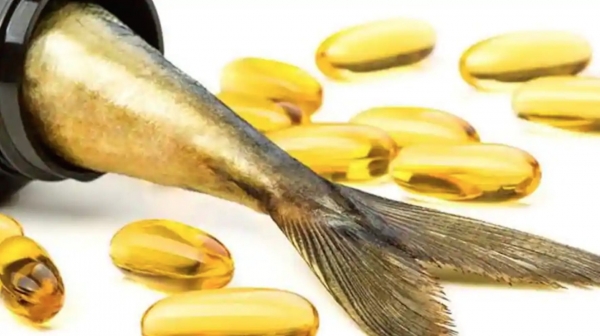Omega-3s have a storied reputation in the nutrition world. Studies claim that the fatty acids found primarily in fish can help fight inflammation, improve brain health, and may even prevent heart disease.
Since 2002, the American Heart Association has recommended two servings of fish a week, or, for those who detest the taste, omega-3 fish oil supplements. The first major assertion of fish oils’ health benefits dates back to the 1970s, when Danish chemists Hans Olaf Bang and Jorn Dyerberg found a high concentration of omega-3 fats in a Greenlandic Inuit community with a low rate of heart disease.
However, Joe Schwarcz, director of McGill’s Office for Science and Society and a professor in the Department of Chemistry, pointed out that the study was a classic case of confusing cause and effect. While the researchers said that omega-3s may explain the low incidence of heart disease, they never confirmed it. In fact, it was later found that the community did not have reduced rates of heart disease.
“The only way a cause and effect relationship can be established is by mounting randomized, placebo-controlled trials,” Schwarcz wrote in an email to The McGill Tribune.
Since the 1970s, there have been many such trials. While the early studies showed benefits in consuming omega-3s, many recent ones have not. In an interview with National Public Radio (NPR), author Paul Greenberg discussed how, in the past ten or fifteen years, many meta-analyses—studies that group previous studies together to extrapolate larger findings—have concluded that omega-3s have a very limited effect. Even the American Heart Association has made an effort to rephrase its recommendations, stating that fish oil supplements are only significantly beneficial to those diagnosed with cardiovascular disease.
On top of that, the fish-reduction industry—which boils small fish into oil for use in supplements and animal feed—is largely unsustainable.
According to Greenberg, about a quarter of the fish we catch are used in the fish reduction industry. Many are keystone species, which means that other species’ populations are highly dependent on them for survival.
According to Denis Roy, a fish ecologist and assistant professor in McGill’s Department of Natural Resource Sciences, many of the world’s commercial fisheries—the reduction industry included—have either collapsed or are on the verge of collapsing. For him, it’s important to understand the ecological implications of fisheries management.
“I think one of the major issues with the way in which a lot of fisheries are managed is that we just don’t have enough basic information on the actual species themselves, [and] also [on] how those species use their environment,” Roy said.
Sustainable fisheries must pay close attention to the reproduction of the species as well as the number of fish that the environment can support, known as the carrying capacity. Overfishing can cause populations to crash and regenerate at much lower carrying capacities. To complicate management decisions, fisheries assure the livelihood of about 10-12 per cent of the world’s population, expanding the stakes of the fishing industry beyond the environmental implications of collapse.
For those still adamant about the benefits of omega-3 supplements, it might be a worthwhile and environmentally proactive venture to try algal oil instead since, through aquatic food chains, algae is the origin of the omega-3s found in fish.
Contrary to recent evidence and to the detriment of the environment, omega-3s are still riding the popularity wave of the supplement industry, which has largely been successful due to its lack of regulations. Yet, their superstar status may be spreading thin.








